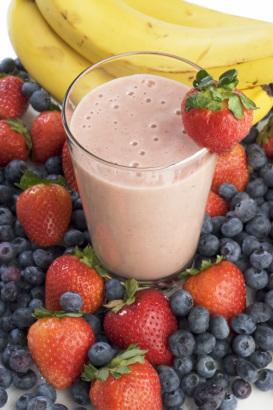 Talking about nutrition is like talking about religion or politics. Talking about sugar can be equally controversial. To level the playing field, I suggest that we can all agree on two things no matter where we are in our nutrition beliefs:
Why diet books are denouncing fruit:
Answers:
The real question to ask yourself:
Sugar statistics:
Recent meta analysis findings: Dr. Lisa Te Morenga (University of Otago, Nuned in New Zealand) and colleagues, included the results of their meta analysis that included 30 randomized controlled trials and 38 cohort studies of dietary sugar intake and adiposity. They published their paper online in the BMJ, January 15, 2013. They found that cutting consumption of sugar produces a small but significant reduction in weight for adults and not as much for children. Why? Because children were not as compliant. They defined “free sugars” as sugars that are added to foods by the manufacturer, cook, or consumer, plus those naturally present in honey, syrups, and fruit juices. The review is accompanied by an editorial by Dr. Walter C. Willett (Harvard School of Public Health, Boston, MA) and Dr. David S. Ludwig (New Balance Foundation Obesity Prevention Center, Boston Children's Hospital, MA). I like what Drs. Willett and Ludwig said in their editorial of this meta analysis:
More practical comments:
Actions you can take:
Diet matters. If one person eats a granola bar containing added sugars, flavorings and color, and another eats an orange and a handful of almonds, which will perform better? Eating healthy makes us feel better. Eating junk displaces healthy foods that provide needed nourishment, and ESPECIALLY for our children’s proper growth and development. The brain works best with about 25 grams of glucose circulating in the blood stream which is about the amount found in a banana (not to be confused with "added sugars"). It is suggested that eating smaller meals works well for the brain. For perspective however, a small diabetes study proved that those eating two larger meals per day vs. those eating smaller meals throughout the day, lost an average of 8 lbs. more over the study period. Studies focus on what they are trying to prove or disprove. The practicality of a healthy diet is to find what works for you based on your preferences and healthy choices. Feeling satisfied has a lot to do with our cravings or lack thereof. Real food, prepared healthily, will help you feel satisified. Processed food will not. Choose wisely, know what you are eating and how much, enjoy your favorites sometimes and in the right portions; and remember, fruit is not the enemy. Health Inspires.
0 Comments
Leave a Reply. |
Kathryn ScoblickMy passion and purpose is helping people reach their full potential and master their wellbeing. Categories
All
Archives
February 2021
|
|
Disclosure: Always consult with your physician or other qualified health care provider before beginning any diet or exercise program and ask whether you are healthy enough to engage in a diet and exercise program. Never disregard, avoid or delay in obtaining medical advice from your doctor or other qualified health care provider concerning your overall health and wellness, including your physical, mental and emotional wellbeing. If you have or suspect that you have a medical problem or condition, please contact a qualified health care professional immediately. It is your choice to follow the suggestions, opinions and advice given by a Health Inspires wellness coach.
|
